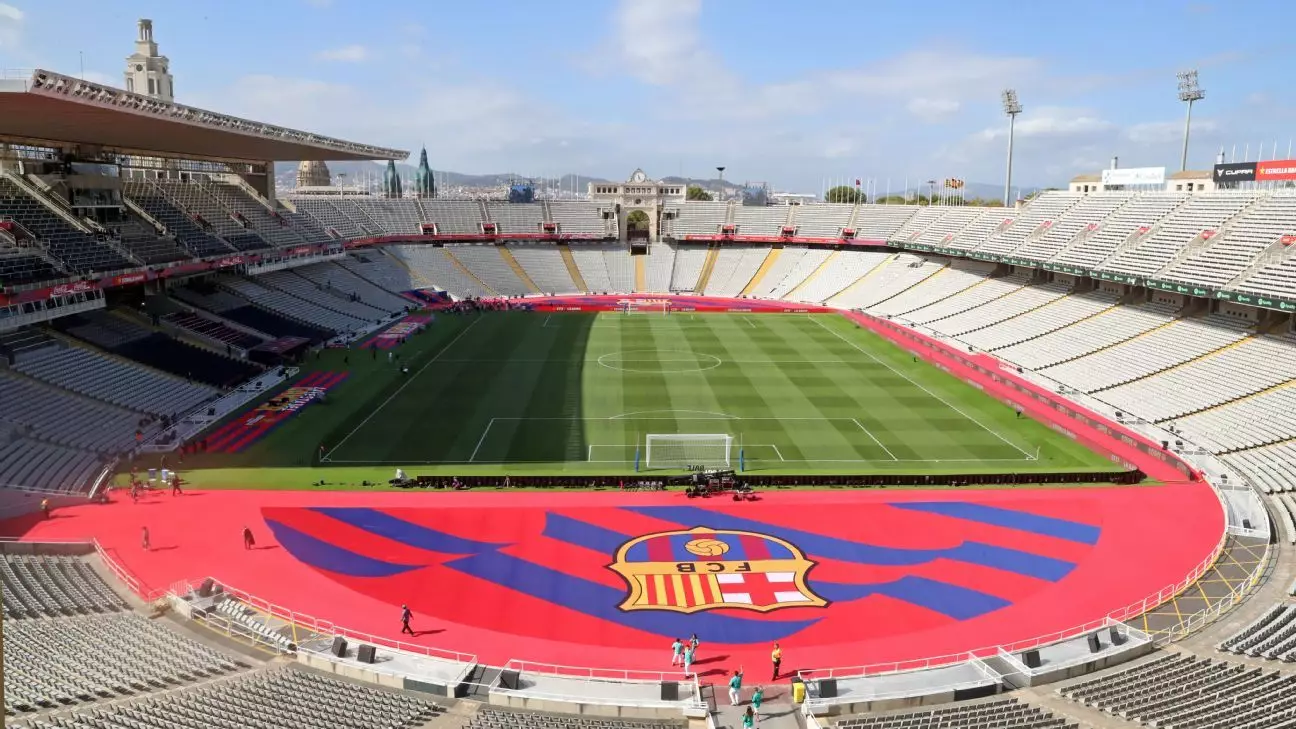FC Barcelona, one of the most prominent football clubs globally, has faced significant logistical challenges due to renovation delays at their iconic home, Spotify Camp Nou. Initially expecting to return to their beloved stadium last November, the club recently adjusted its timeline, now projecting a return by May 2024. This change has necessitated a critical request to extend their current lease at the Olympic Stadium, allowing them to play crucial matches without interruption. The current lease, which expires at the end of April, would leave the club in a precarious situation for their final home games if not extended. This could have significant implications, particularly for high-stakes fixtures like the Clásico against rivals Real Madrid.
The Implications of Lease Extensions
Barcelona’s request for an extension until the end of May to cover pivotal matches is not only a logistical necessity but a strategic decision. If approved, it would eliminate the risk of hosting the Clásico outside Spain, an option that had been rumored amid the uncertainty surrounding their home fixtures. The extended lease is essential for the two remaining league games, as it ensures that the Barcelona faithful can witness crucial encounters live, rather than being forced into a scenario of uncertainty.
Moreover, the initial inability to renew the lease due to scheduled Rolling Stones concerts highlights the complexities involved in event planning for multifaceted venues. However, with these concerts now postponed, the way is clear for FC Barcelona to maintain its presence in the Olympic Stadium for the crucial end-of-season matches.
Despite the club’s desire to return to Camp Nou, the temporary circumstances underscore unresolved renovation challenges. The upcoming return is expected to be partial, with work slated to continue and an initial attendance cap of around 60,000 fans. This figure, while significant, signals a temporary setback from the stadium’s eventual full capacity, projected to reach about 105,000 by the summer of 2026, positioning it as the largest stadium in Europe. The phased reopening will require careful management to balance ongoing renovations while providing fans with the football experience they have been missing during this transitional phase.
In parallel with these infrastructural developments, Barcelona has been proactive on the transfer front, confirming the sale of midfielder Unai Hernández to Al Ittihad. This move not only highlights the club’s strategy to optimize its roster but also reflects financial prudence amid ongoing renovations. Hernández’s transfer, valued at an initial €4.5 million, alongside potential future earnings, indicates Barcelona’s efforts to rejuvenate their squad while navigating a financially tumultuous period.
As FC Barcelona approaches a crucial juncture with significant matches on the horizon, their ability to adapt to evolving circumstances will be crucial. Securing an extension for the Olympic Stadium lease exemplifies their focus on maintaining continuity for fans and players alike. However, as renovations at Camp Nou continue to unfold, the club must prepare to effectively transition back to its historic venue while managing fan expectations and squad dynamics. With strategic decisions on housing matches and player transitions, Barcelona is setting the stage for a promising future despite the challenges presented by this transitional period.
